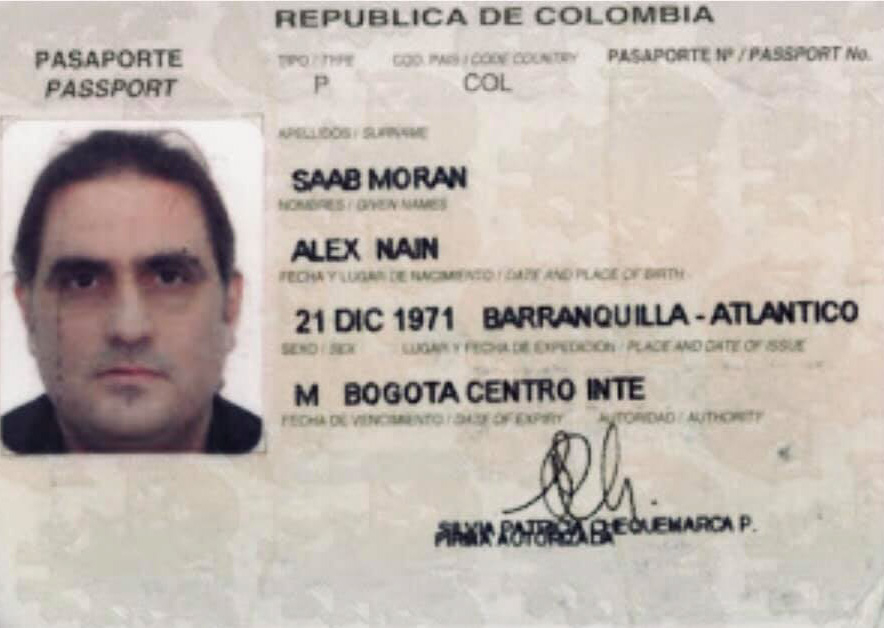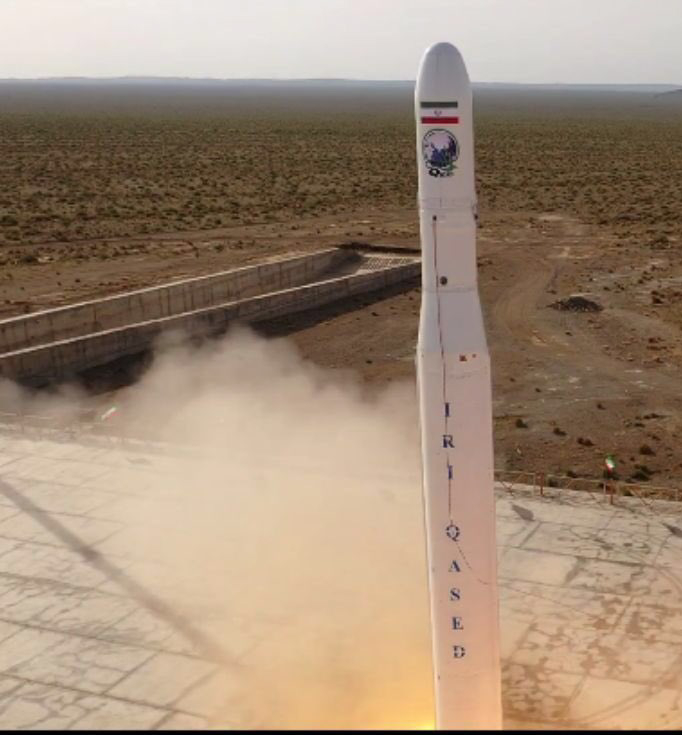 Venezuelan President Nicolas Maduro released this photograph of his meeting with Iranian oil minister Javad Owji. |
Venezuela needs assistance to revamp its oil facilities, which are in decline due to governmental ineptitude, to boost production. Iran needs Venezuela and its Latin American allies, such as Bolivia, Peru, and Argentina, for commercial purposes. Both share the same anti-imperialist agenda, which, along with Iran's sale of drones and missiles to Venezuela, poses a danger to the nearby United States.
"Any increase in Venezuelan oil production will provide funds to empower the Maduro regime, which is a state-controlled joint criminal enterprise," IBI Consultants president and security expert Douglas Farah told the Investigative Project on Terrorism. "Iran's alliance with Venezuela is rooted in a shared hatred of the United States and Iran has repeatedly shown its willingness to provide sophisticated weapons to Maduro and aid and abet sanctions evasions. Increased oil revenues enhance the most repressive regime in the region, drives irregular migration and wreaks economic havoc across Latin America."
Iran's oil minister Javad Owji made a rare trip to Venezuela late last month to visit oil facilities and sign energy deals. It was the first stop of a journey that then took him to Nicaragua to negotiate an oil partnership to neutralize the effects of U.S. and European sanctions.
"Relations between Iran and Venezuela have a long history, and we want to use all our capacities to develop relations and joint cooperation," he said.
The U.S. Treasury Department designated Owji in November 2020 for being a member of the board of directors of Sina Energy Development Company (SEDCO), an energy holding of Bonyad Mostazafan. The company was "an immense conglomerate of some 160 holdings in key sectors of Iran's economy (...) used by the Supreme Leader Ali Khamenei to enrich his office, reward his political allies, and persecute the regime's enemies," the Treasury designation said.
Owji's trip proved fruitful, however, as officials from both oil-producing nations ratified agreements, notably on hydrocarbons. Iran has already begun exporting its heavy crude to feed Venezuelan refineries and will expand its supply of diluents, which the Russians used to provide before the Ukrainian conflict, in exchange for gold or a portion of Venezuelan refined oil. Iran and Venezuela also reviewed bilateral collaboration in the oil, gas, and petrochemical sectors.
"We discussed the construction of routes and mechanisms to overcome the unilateral coercive measures imposed by the U.S. government and its allied countries," said Venezuelan oil minister Tareck El Aissami. Designated in 2017 as a specially designated narcotics trafficker (SDNT) for playing a large role in international drug trafficking, El Aissami was charged in 2019 with "circumventing sanctions and violating the Kingpin Act" in connection with his use of private aircraft.
Evading Sanctions
Oil cooperation between Venezuela and Iran has already helped to mitigate the impact of U.S. sanctions on the two countries. Iran said last month that its oil production capacity had returned to the levels before U.S. sanctions were reimposed in 2018. Venezuela, which has the world's largest proven reserves of crude, has managed to double its oil production as a result of Iranian assistance. The country produced about 900,000 barrels of oil per day in December 2021 compared to the less than 450,000 produced per day during the same period in 2020.
"Venezuela paid Iran $500 million in gold bars for 1.5 million barrels of fuel delivered from April to June 2020," Farah said. "Tehran centered its engagement on gasoline shipments to the Maduro regime and a series of flights between the two nations to ferry out the gold used to pay for the fuel, and possibly deliver advisers, technicians, and equipment into Venezuela."
Due to the increase in oil production, for the first time since 2013 "after years of U.S. economic war of boycotts and blockades, Venezuela is back on track for economic growth," President Nicolas Maduro announced during his annual address before the National Assembly last January. Venezuela's economy grew by more than 4 percent last year, he said, following eight years of recession and hyperinflation.
Despite Maduro announcement, Owji's recent visit to Venezuela comes at a sensitive time for Venezuela and Iran's relations with the United States. In March, Maduro welcomed U.S. officials for a rare meeting, fueling speculation that sanctions might be lifted to reopen oil markets after Russia's invasion of Ukraine. Later, the White House clarified that it was not engaged in "active conversation" with Venezuela over oil imports.
Furthermore, the Iran nuclear talks have come to a standstill, and an agreement to limit Iran's nuclear aspirations in return for sanctions relief seems to be slipping away. Negotiators are still stuck on one major issue between the U.S. and Iran: the status of the Islamic Revolutionary Guard Corps (IRGC), a powerful branch of the Iranian military.
Following President Donald Trump's 2018 withdrawal from the nuclear deal, the United States put the organization on its Foreign Terrorist Organizations list in 2019. Reportedly, Washington considered delisting the IRGC in return for Iran to stop targeting Americans in the region and desist from retaliating against former U.S. officials to avenge the 2020 assassination of IRGC commander Qassem Soleimani.
But Iran refused to make such reciprocal concessions.
"There is an ongoing threat against American officials, both present and past," Secretary of State Antony Blinken told Congress last month, in response to questions whether Iran continues to target former Secretary of State Mike Pompeo and others.
Three high-level IRGC representatives are key players in the Venezuelan oil trade. A recent investigation by the Argentine-based news site Infobae revealed that Conviasa, Venezuela's national airline, regularly brings IRGC members, along with engineers and technicians, to Caracas.
Hojjatollah Ghoreishi, vice minister of defense and logistics for the Iranian Armed Forces, supplies IRGC Quds Force with foreign cash for operations in Syria, Yemen, and Iraq. Venezuelans call Ghoreishi "Midas," according to the Infobae investigation, for his alleged ability to turn everything into gold. He is in charge of converting Venezuelan gold – collected as payment by the national petrochemical companies – into cash through Turkish banks.
Another regular Iranian visitor to Venezuela is Azim Monzavi, commander of a secret Islamic Revolutionary Guard unit, who is dedicated to trafficking Venezuelan oil in various black markets for the Quds Forces, Infobae reported.
Iran provides expertise to Venezuela beyond the IRGC. Ali Akbar Purebrahimi, an oil ministry engineer and expert, is in charge of one of the country's most important refineries, El Palito.
The purchase of armaments is also at stake. The Venezuelan military is buying Iranian drones with oil revenues. Israel's Defense Minister Benny Gantz claimed in February that Tehran also gave Maduro's government precision-guided missiles to be used with Mohajer-6 drones.
By using Venezuela as an entry point to Latin America, Iran will continue to be a thorn in the side of the United States. A new U.S. policy framework toward Latin America along with new or modified financial measures should be a priority to fight Iran's criminal ambitions.
 Maria Zuppello is an Italian investigative reporter based in Brazil and an expert on the crime-terror nexus. She is the author of the book Tropical Jihad.
Maria Zuppello is an Italian investigative reporter based in Brazil and an expert on the crime-terror nexus. She is the author of the book Tropical Jihad.
Copyright © 2022. Investigative Project on Terrorism. All rights reserved.



 Iranian "Aeroterror" Flights Reborn in Latin America
Iranian "Aeroterror" Flights Reborn in Latin America
 Venezuela Seeks to Leverage U.S. Energy Needs to Free Iran's Super-Influencer
Venezuela Seeks to Leverage U.S. Energy Needs to Free Iran's Super-Influencer
 The Real Threats Behind Iran's Military Satellite Launch
The Real Threats Behind Iran's Military Satellite Launch